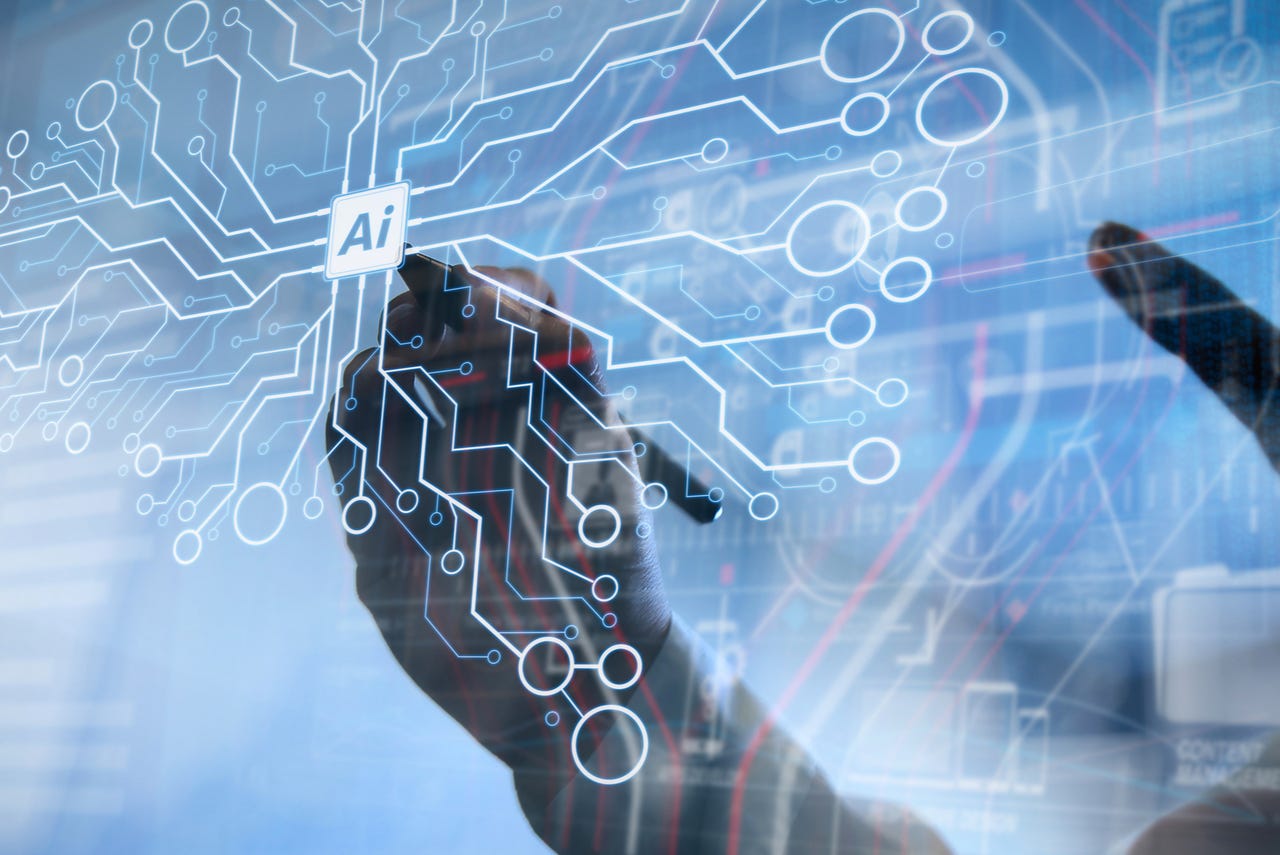































 Shutterstock
Shutterstock Responsible and ethical artificial intelligence has become the hot-button issue of our times, especially as AI seeps into every aspect of decision-making and automation. According to a recent survey, 35% of companies now report using AI in their businesses and 42% are exploring the technology.
Digital transformation projects are about driving fundamental change across customer experience, tech and business culture. This ZDNet special report brings you the latest trends and insights you need to succeed.
Read nowThe same survey by IBM finds that trust is extremely important -- four in five respondents cite being able to explain how their AI arrived at a decision as important to their business.
However, AI is still code -- ones and zeros. It doesn't carry the empathy and often is missing context, as I and my co-author Andy Thurai, strategist with Constellation Research, explained in a recent Harvard Business Review article.
It has the potential to deliver biased and harmful results. As AI moves up the decision chain -- from simple chatbots or predictive maintenance to assisting executive or medical decisions -- there needs to be a reckoning.
Also: The people building artificial intelligence are the ones who need AI the most
That is, AI's developers, implementers, users, and proponents need to be able to show their work, explain how decisions are made, and be able to continually adapt to new scenarios.
Responsible AI, however, is not easy. It means pressure -- especially on AI teams. As Melissa Heikkil? points out in MIT Technology Review, "Burnout is becoming increasingly common in responsible AI teams." The largest organizations have "invested in teams that evaluate how our lives, societies, and political systems are affected by the way these systems are designed, developed, and deployed." For small-to-medium companies and startups, it means these responsibilities fall to developers, data engineers, and data scientists.
The result -- even at the largest companies -- is that "teams who work on responsible AI are often left to fend for themselves," Heikkil? finds. "The work can be just as psychologically draining as content moderation. Ultimately, this can leave people in these teams feeling undervalued, which can affect their mental health and lead to burnout."
Also: AI's true goal may no longer be intelligence
The speed of AI adoption in recent years has ratcheted up the pressure to intense levels. AI has moved from the lab to the production level "faster than expected in the last few years," says Thurai, who has been a vocal advocate for responsible AI. Managing responsible AI "could be particularly draining if they are forced to moderate content, decisions, and data that are biased against their beliefs, viewpoint, opinions, and culture, while trying to maintain a fine line between neutrality and their beliefs. Given the fact AI works 24x7x365 and the decisions made by AI sometimes are life-changing events, the humans in the loop in those areas are expected to keep up with that which can lead to burnout and exhaustion, which can lead to error-prone judgments and decisions."
Laws and governance "haven't caught up with AI," he adds. "Combined with the fact that many enterprises don't have proper procedures and guidelines for ethical AI and AI governance, making this process even more complicated."
Add to this the potential challenges to AI outputs from courts and legal systems, "which start to impose hefty penalties and force corporations to reverse their decisions," he says. "This is particularly stressful for the employees who are trying to enforce the rules on AI systems."
Also: Artificial intelligence: 5 innovative applications that could change everything
Support from the top is also lacking, piling onto the stress. A study of 1,000 executives published by MIT Sloan Management Review and Boston Consulting Group confirms. However, the study finds that while most executives agree that "responsible AI is instrumental to mitigating technology's risks -- including issues of safety, bias, fairness, and privacy -- they acknowledged a failure to prioritize it."
So how do AI proponents, developers, and analysts address the issues with potential burnout, a feeling of fighting the ocean's tides? Here are some ways to mitigate AI-induced stress and burnout:
"It is easy in this bipolar-biased world to call AI-made ethical decisions to be fake by people who disagree with it," says Thurai. "Corporations should take extra care with both transparency in AI decisions and the ethics and governance that are applied. Explainable AI from top to bottom and transparency are two important elements. Combine with regular auditing to evaluate and course-correct actions and processes."
 Tags quentes :
Negócio
Transformação Digital
Tags quentes :
Negócio
Transformação Digital